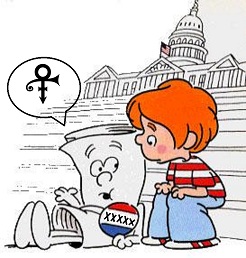To hails of derision in some quarters—I’m looking at you, Adam—I have talked about how social media will occupy some of the space being ceded by traditional news reporting, which is struggling to find a business model. Perhaps with validation from an official, vetted, professional, dead-tree news source, it will seem less ridiculous to talk about news reporting being generated spontaneously by people “on the scene” or with the greatest knowledge of facts and conditions in a particular area.
Think of the mental habit that has us calling police and fire personnel “first responders.” They are almost always, in fact, second responders, with first response undertaken by average citizens, who often do a pretty good job of it. Think of the true first responders to recent attempted bombings on transatlantic flights: ordinary citizens who thwarted the underwear and shoe bombers. (I risk painting too heroic a picture . . . .)
Newspaper reporters and photographers are intellectual second responders, who come in after the fact, as generalists, to summarize events and trends for us. Yet these are who we look to as authorities on what happened, and how to think about it? That doesn’t seem to make sense if there are other options for being informed. And now there are.
I’ll take a cue from Adam’s good work in debunking the Internet pessimists who argue that “closed” access and technology models are strangling the open/’generative’ Internet: There’s plenty of room for both—both traditional journalism, as it finds its new niche, and reporting by ordinary people who are on the scene and who have superior knowledge in a particular domain.
I suspect that we’ll find better media and filters than Twitter’s firehose of info-pellets by which to learn about things like the hostage-taking in the D.C. area. There may even be a business model in it. Go to it, technology and markets!

 Following suit,
Following suit,  The Technology Liberation Front is the tech policy blog dedicated to keeping politicians' hands off the 'net and everything else related to technology.
The Technology Liberation Front is the tech policy blog dedicated to keeping politicians' hands off the 'net and everything else related to technology.